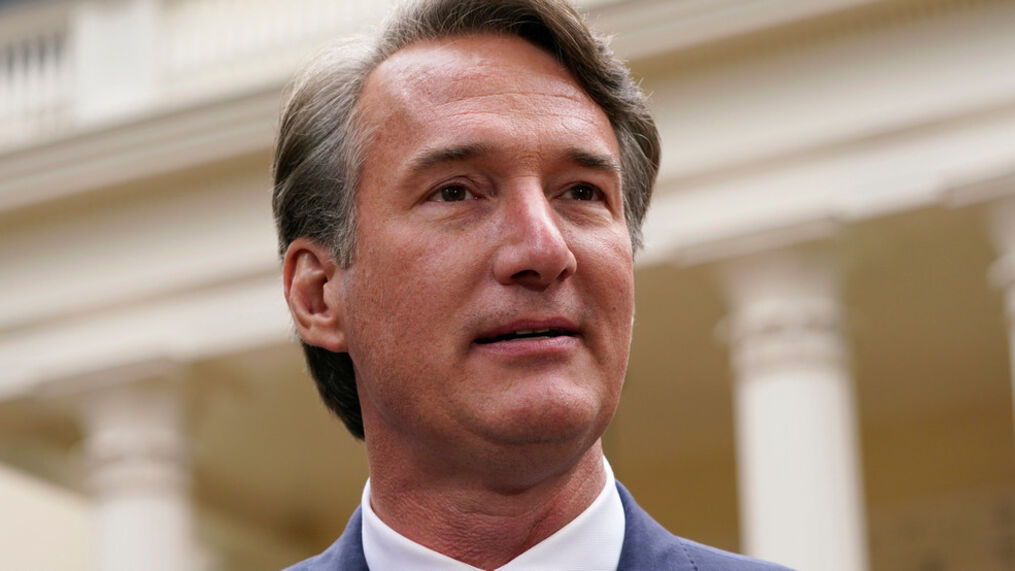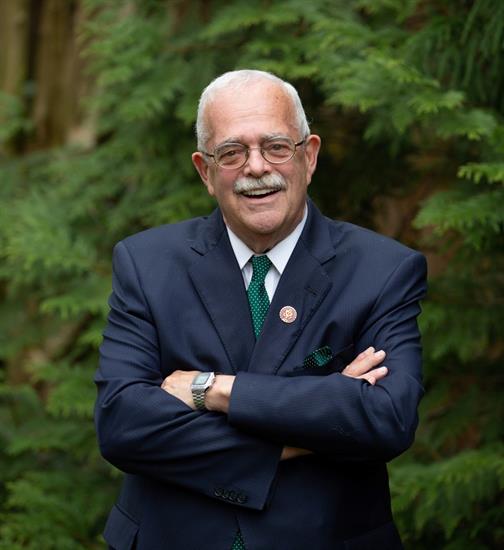Glenn Youngkin: The Governor Virginia Democrats Deserve
Governor Glenn Youngkin is taking office today on Saturday, Jan.15, 2022, but just two months ago his victory shocked the state when he defeated former Gov. Terry McAuliffe in a race that Democrats expected to sweep.
Over the past four years, Virginia made strides as the first Southern state to legalize recreational marijuana, end the death penalty, and introduce protections for the LGBTQ+ community. But now, that could all be at risk.
Virginia Democrats went into this election holding all three statewide positions on the ballot and a five-seat majority in the House of Delegates, but they lost it all. What went wrong?
The answer is simple: Terry McAuliffe was the wrong candidate to face Glenn Youngkin.
Youngkin’s campaign strategy and messaging worked. It was a nearly flawless campaign from a messaging standpoint. Throughout the election, Youngkin avoided taking strong stances on any issue, which might have seemed like a poor strategy initially, but it was ultimately a powerful tactic. Youngkin’s refusal to establish positions on crucial issues allowed him to earn the trust of moderates, conservatives, and right-wing extremists.
Youngkin discussed critical race theory frequently, using it to provoke fear among moderates and independent voters. He spoke to the concerns of white parents who are increasingly afraid their children are going to be taught that they should feel bad or guilty for being white.
But most importantly, Youngkin did not denounce or embrace the support of former President Donald Trump. He accepted Trump’s endorsement, but he didn’t make it a centerpiece of his campaign. He let the former president send out emails to supporters, telling them that Youngkin was on his side. But he didn’t say it himself.
As former President Barack Obama said while discussing Youngkin, “Either he actually believes in the same conspiracy theories that resulted in a mob, or he doesn’t believe it but he is willing to go along with it, to say or do anything to get elected. And maybe that’s worse … because that says something about character.”
Obama is right, but Youngkin never tipped his hand. He walked a very careful line to ensure he got as much support as possible.
And somehow Democrats thought McAuliffe was the right candidate to challenge him.
McAuliffe barely won the 2013 gubernatorial election against then Attorney General Ken Cuccinelli, whose support among Republicans was split because of his extremist views. If it weren’t for Libertarian nominee Robert Sarvis dividing the Republican vote, McAuliffe never would have been governor. He was a weak candidate then, and he was an even weaker candidate in 2021.
McAuliffe didn’t address the issues that mattered to voters. He reversed his campaign’s stance on qualified immunity and made it a point to express his support of law enforcement, refusing to speak to the very real issues of police brutality and racial inequities in our justice system. He turned his back on trans students and the LGBTQ+ community. He never took time to talk about the amazing progress Democrats made in Virginia in the past four years. He didn’t talk about how they legalized marijuana, expanded Medicare, abolished the death penalty, banned discrimination against the LGBTQ+ community, banned conversion therapy, and expanded voting rights.
Instead, McAuliffe decided to run a negative campaign. At every opportunity, he attacked Youngkin and attempted to link him to Trump, a deeply flawed strategy. Youngkin was playing to the center; he was avoiding associating himself with Trump the entire time. Yes, he accepted Trump’s endorsement, but he never appeared with him during the campaign.
Trump himself is no longer relevant. It’s not effective to be “not Trump” when Trump isn’t a constant anymore. McAuliffe was not running against Trump, and the voters know that. No matter how hard Democrats tried, the public would never see Youngkin as Trump. The link between the two was not strong enough.
Arguably the biggest mistake McAuliffe made on the campaign trail happened during the final debate. His statement that parents should not have a say in what their children are taught in public schools followed him until election day. To some extent, McAuliffe actually has a point; parents are not experts in education and they shouldn’t have an overriding influence over teachers and administrators who are the experts. But the GOP’s twisted interpretation of critical race theory rattled the electorate this year, and the assertion that parents shouldn’t have a say in education wasn’t received well by anyone.
McAuliffe never presented himself as someone who would work to continue the progress that his party achieved. But his messaging was only one problem. He ran a lackluster campaign that turned voters away, or at the very least, did nothing to attract them. He didn’t invest in the communities needed to support him. McAuliffe’s campaign and the Democratic Party of Virginia did not organize a coordinated campaign until September, according to Fredericksburg Democratic Committee Chair Caitlin Durham Bennett. Statewide coordinated campaigns are usually launched in late June or early July. This inaction showed a clear lack of urgency and disrespect toward voters.
A coordinated campaign is crucial for ensuring wins across any state, and the fact that McAuliffe and his team failed to assemble one until too late is not only embarrassing, but it makes them complicit in Youngkin’s victory.
During the primary, it was argued that McAuliffe was the most qualified candidate in the Democratic primary, but that assertion is based on logical fallacies. The Democratic primary saw McAuliffe face off against State Sen. Jennifer McClellan, former Del. Jennifer Carroll Foy, current Lt. Gov. Justin Fairfax, and Del. Lee Carter. Del. Foy was a progressive lawyer who showed that Democrats can swing districts on progressive platforms. Del. Carter was the only socialist elected in the state, and as a working-class, grassroots progressive, he unseated the House majority whip in a district that no Democrat had ever won. McClellan served in public office for over 15 years, between the House of Delegates and the Virginia Senate. Her experience is unquestionable. McAuliffe only served four years in public office, and his previous term as governor was underwhelming at best and his election to that office was a fluke.
Further, an earlier attempt to run for the office was a gross failure. Many people have forgotten that McAuliffe also ran for governor in 2009, receiving just 26% of the vote in the Democratic primary and losing to State Sen. Creigh Deeds. During that campaign, Trump was one of McAuliffe’s most generous donors, making his messaging strategy against Youngkin even more hypocritical.
McAuliffe’s campaign in 2013 was an outlier; he didn’t face a primary opponent. In the general election, he was running against an extremist whose support was questionable within the Republican Party, and even with a third-party candidate dividing the vote, McAuliffe won by a thin margin of 56,000 votes.
When faced with the choice between two qualified Black women with detailed plans on how to lead Virginia forward and a former governor, an older white man with limited accomplishments, Virginia’s Democrats overwhelmingly chose the latter. Establishment Democrats pushed his campaign forward and maintained he was the most experienced, seasoned candidate and their efforts worked. We can’t even argue that McClellan, Carroll Foy, and Carter divided the progressive vote because McAuliffe won with over 62%. Democrats chose him.
Virginia Democrats nominated a weak candidate with a questionable electoral history. When faced with the opportunity to elect the first Black woman governor in the nation with either Carroll Foy or McClellan, they decided to look backward instead of nominating a candidate who would drive the Commonwealth into the future. They chose a candidate who failed to establish his own identity, choosing instead to be “not Trump” while claiming his opponent was.
Democrats should learn from what happened in Virginia. It’s time to talk about the issues that impact people. Comparing every Republican to Trump is a losing strategy, and it’s not the message voters are looking for. We cannot move forward as long as we continue depending on strategies of the past.



